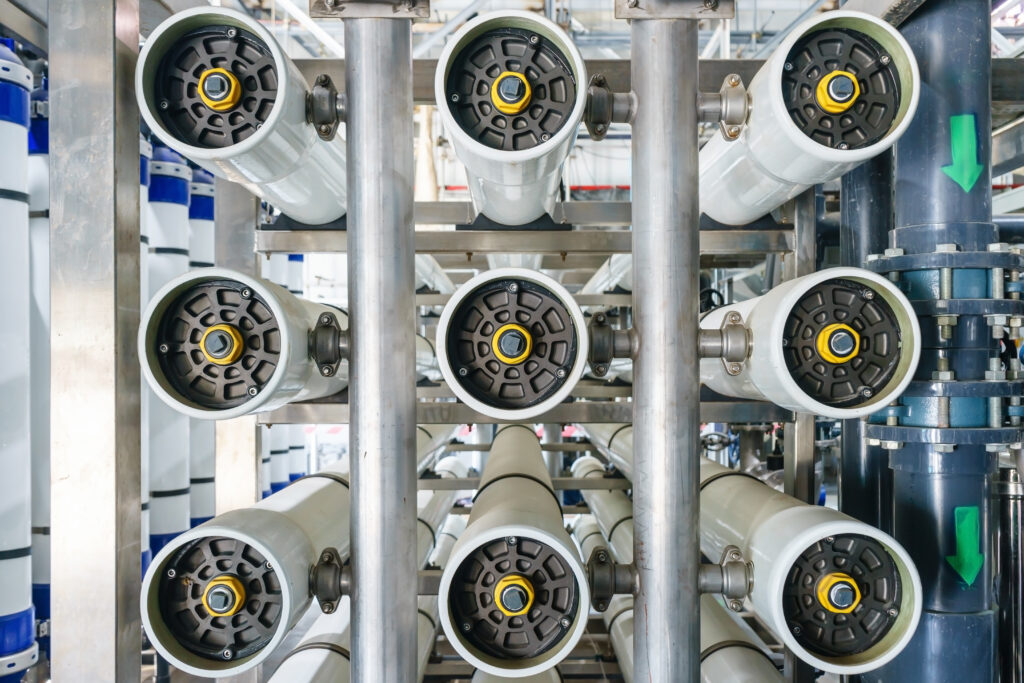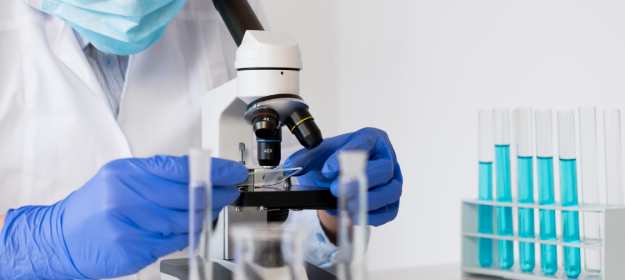success cases
water reuse
Thanks to a customised and sustainable treatment programme using specific environmentally friendly products, increased facility performance, water and energy savings, cost reductions and a reduced carbon footprint are achieved.
A reverse osmosis plant treating blown water from cooling towers for reuse, was affected by severe fouling causing a drastic decrease in performance. Chemical cleaning the membranes was being carried out and was ineffective. In addition, the plant was operating at a lower conversion than designed, due to the high fouling power of the water and the use of a non-specific anti-fouling agent formulated with organic phosphorus.
In order to increase the performance of reverse osmosis, ADIQUIMCA designed a treatment programme using an antiscalant and chemical cleaners from the AdicGreen range, formulated with biodegradable active ingredients that do not contain phosphorus and do not contribute to eutrophication.

The treatment programme increased the performance of the reverse osmosis plant:
| . | Before the intervention of ADIQUIMICA | After implementing ADIQUIMICA’s inprovement actions |
| Permeate flow rate | 8,9 m3/h | 19,4 m3/h |
| Feed flow rate | 29,2 m3/h | 29,8 m3/h |
| Conversion | 31% | 65% |
| Feed pressure | 18,8 bar | 14,4 bar |
| Specific energy consumption per m3 of permeate | 2,12 KWh/m3 | 0,76 KWh/m3 |
| Energy consumption | 18,9 KWh | 14,7 KWh |
| Annual energy consumption | 165.284 KWh/year | 129.157 KWh/year |
| Annual electricity cost | 28.098 € | 21.957 € |
| CO2 | 51,2 Tn/year | 33,5 Tn/year |
This increase in performance led to an increase in permeate flow rate while operating at lower feed pressures, thus reducing energy costs and reducing the carbon footprint:
The improvement actions have also led to sustainable management by increasing the use of reused water as feed water to the cooling towers. Water consumption has been reduced and discharge has been reduced, with the consequent economic savings. Biodegradable and environmentally friendly chemicals are used to minimise the impact of discharging them into the environment. The costs associated with plant stoppages for chemical cleaning, chemical product consumption and membrane replacement due to the increase in their useful life, have been reduced.
Dairy sector
The estimated fuel losses due to excess product dosage were 59,600 kwh/month.
A new dosing scheme for treatment products is proposed to stabilize the operation of the generators and minimize resource consumption.

In the implementation period of the new one, 6 months, 35% less losses are estimated, which demonstrates:
-> Effective control in the dosage of chemical products in mold replacement.
-> A reduction in operating costs in the facility, increasing the competitiveness of the center
metallurgy sector
Our focus is on ensuring the integrity and durability of these materials, enabling greater efficiency and reliability in industrial processes.
The treatment that was being carried out caused the appearance of pores in the aluminum molds of the circuit due to the presence of high pH values due to the use of adsorption inhibitors based on film-forming compounds.
Adiquimica’s treatment proposal involves the use of Adiclene 590 series formulations based on specific corrosion inhibitors for aluminum.
logistics sector
In a food storage and distribution logistics center, the implementation of the projections made from the Adic-Ionic software has reduced the system’s replacement water consumption by 27%. This is possible thanks to the operation at a higher concentration factor and the chemical treatment based on the product Adiclene 1221.
Before treatment
2
After treatment
3,15
Before treatment
0%
After treatment
27%
Before treatment
9,68m3/h
After treatment
4,5 m3/h
Before treatment
131.300 m3/year
After treatment
95.592 m3/year
Blog
Stay up to date on industry news and new regulations that may affect your company

Contact
To provide the best experiences, we use technologies such as cookies to store and/or access information on your device. Consenting to these technologies will allow us to process data such as browsing behaviour or unique identifiers on this site. Not consenting, or withdrawing consent, may adversely affect certain features and functions.